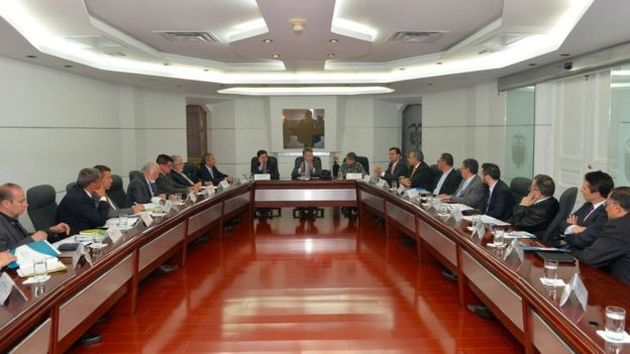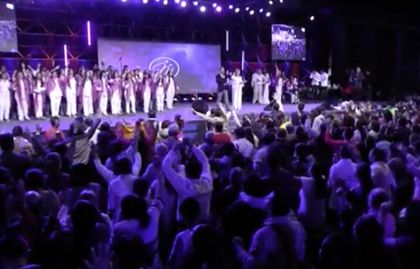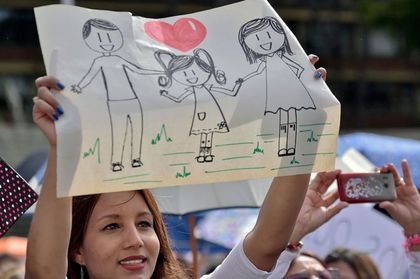Colombian evangelicals divided about the future of the country
Around ten million evangelicals voted in the referendum. Some analysts believe that the 'no' “was hatched at church”, but many evangelicals have publicly supported the “yes.”
Protestante Digital · BOGOTÁ · 06 OCTOBER 2016 · 21:08 CET

The president of Colombia, Juan Manuel Santos, and a group of evangelical leaders have gathered to discuss the referendum held last Sunday, in which the "no" to the peace agreement with the FARC won.
In a press conference, the President said he wanted to hear the opinions of the evangelicals, "especially those who have voted 'no'." "We listened to them carefully and told them that hopefully we will have proposals soon [...] because we are in a kind of limbo that is risky and can derail the whole process", he added.
After the meeting, Pastor Edgar Castaño, president of the Evangelical Council Confederation of Colombia (CEDECOL in Spanish), said that they asked the president for a relevant participation of the church in the review of new peace agreement.
“We also asked to include the freedom of worship in the agreement, and to investigate all the Christian victims that have not been found. The President agreed to talk about everything", Castaño pointed out.
DIVISION AMONG EVANGELICALS
According to the Colombian magazine Semana, “around ten million evangelicals” voted in the referendum, and many experts and analysts believe that their vote was crucial for the surprising results.

Colombian journalist Alfredo Serrano, even said in an article that “the 'no' was hatched at church”, and the pools prior to the voting were wrong because “they did not consider the growing impact of the evangelicals in society.”
“I VOTED YES TO REBUILD THE COUNTRY, DREAMING A RECONCILIATION”
Harold Segura, Colombian theologian and Director of Ecclesiastic Relations of World Vision International believes that “although the peace agreemnt was imperfect, it contains all the necessary arrangements to finish the armed conflict , and let us dream with the end of a 52 years war.”
“My 'yes' is not for president Santos (I did not vote for him), but a hope that the agreement would help us to rebuild this country and to dream with a reconciliation”, Segura wrote in his article published at Protestante Digital.
“THE `NO´ COULD BE MORE USEFUL”
Responding to Segura´s article, writer and journalist Tomás Gómez stated that, “the 'no' could be more useful that the `yes´”, because “it is from it that we can really start to work harder for a real peace.”
Gómez is sure that “there will be peace in Colombia, beyond agreements, referendums and political tricks.”
FAMILY VALUES
According to Segura, one of the key points for the victory of the 'no' was that “many evangelical churches and Catholic leaders, spread among their flock the fear that the agreement contained clear and dangerous signs of "gender ideology" (although the agreement talks about "gender equity") and because of it the country would be exposed to the "dictatorship of homosexuals.”

Some Christians “also said that LGBTI movements had participated in the negotiations in Havana, while church leaders were not given the same opportunity”, he added.
Serrano also stated that “most of the messages they had received from their pastors said that gender ideology was present in the agreement, and it is an attack to traditional family values.”
"Evangelicals were conclusive on this result, not because this community, with an increasing real presence in Colombian society, does not wish peace. On the contrary, they want it, but when the theme of the family appears, they are like a wounded animal and say: Here I am."
HOPE FOR THE FUTURE
“In the misdt of many setbacks, hope must rekindle. If the FARC maintain their commitment to the cessation of conflict and the government keeps its willingness to dialogue, it is now up to the promoters of 'no' to propose changes to the agreement and confirm that they do have an interest in peace”, Segura concluded.
Published in: Evangelical Focus - world - Colombian evangelicals divided about the future of the country
